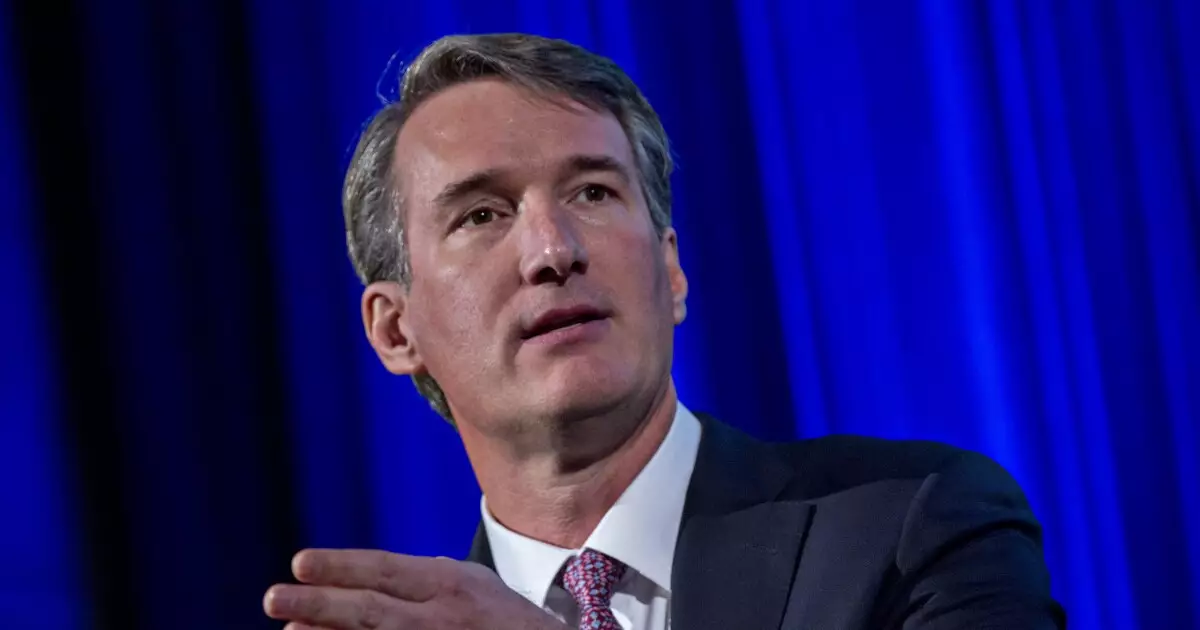Virginia is experiencing a heated debate regarding its state budget as lawmakers challenge the governor’s fiscal proposals. With a billion-dollar tax rebate plan on the table, the intricacies of governing, budgeting, and political maneuvering become clear. The rivalry between the Democratic-controlled General Assembly and Republican Governor Glenn Youngkin exemplifies the tensions inherent in state governance, especially as state surpluses provide opportunities for taxpayer relief.
The unfolding budget discussions revolve around a significant agreement between the two legislative houses endorsing direct financial assistance to taxpayers. Each individual taxpayer stands to receive $200, while couples would get $400, a notable rebate amid rising costs of living. Additionally, an increase in the standard state income tax deduction demonstrates a collective push to alleviate financial strain for Virginians. This duo of relief measures indicates a pragmatic yet politically savvy approach to utilize surplus funds.
Governor Youngkin, eyeing a potential future in national politics, has separately proposed adjustments to the personal property tax, particularly on vehicles. The current tax is set at 4.15%, and his plan aims to channel the surplus back to residents by modifying how these taxes are collected. This strategy, while well-intentioned, may reflect political aspirations as much as it aims for fiscal prudence.
The budget approval process is far from straightforward. Previous skirmishes between Youngkin and the General Assembly have led to significant conflicts, including the blocking of initiatives like the construction of a new arena complex in Alexandria. This history raises questions about the efficacy and unity of Virginia’s leadership. The necessity of a finalized budget by February 22 adds urgency to the negotiations; failure to reach an agreement would mean the continuation of the existing budget, potentially frustrating both lawmakers and constituents alike.
As lawmakers engage in negotiations, it is evident that the political landscape influences their decisions. While the rebates are widely popular among legislators, certain policy experts warn of the implications of regularly refunding budget surpluses. This emerging trend may signal broader tax policy shifts, compelling leaders to consider the long-term financial health of the state over immediate political gains.
Leaders such as Senate Minority Leader Ryan McDougle advocate fiercely for tax rebates, recognizing their popularity and the immediate benefits to constituents. By positioning the rebate as “money back in their pockets,” lawmakers frame it as a tangible success amidst ongoing economic challenges. This strategy may indeed rally public support; however, it risks overshadowing the complexities involved in state budgeting and the necessity for sustainable fiscal practices.
As Youngkin’s government seeks approval for a $295 million deposit into Virginia’s reserve fund, Fitch Ratings recently assigned a ‘AAA’ rating to the commonwealth’s bonds, affirming its solid financial outlook. This positive recognition is crucial, as it underscores the state’s sound economic management and the viability of its revenue generation. Yet, it also highlights a critical juncture: balancing the desire for tax relief against the imperative of maintaining robust financial reserves.
Virginia’s current budgetary discussions exemplify the intricate dance of governance, where ideological differences intersect with the pressing demands of constituents. As lawmakers push towards a resolution, the stakes are high—not only for the immediate financial relief they aim to provide but also for the broader implications of their fiscal decisions. The outcome of this legislative session may very well set a precedent for future budget strategies, influencing state policies in an era characterized by both economic surplus and political division. Bridging the gap between short-term relief and long-term fiscal stability will undoubtedly remain a focal point of Virginia’s governance as it navigates this challenging landscape.

